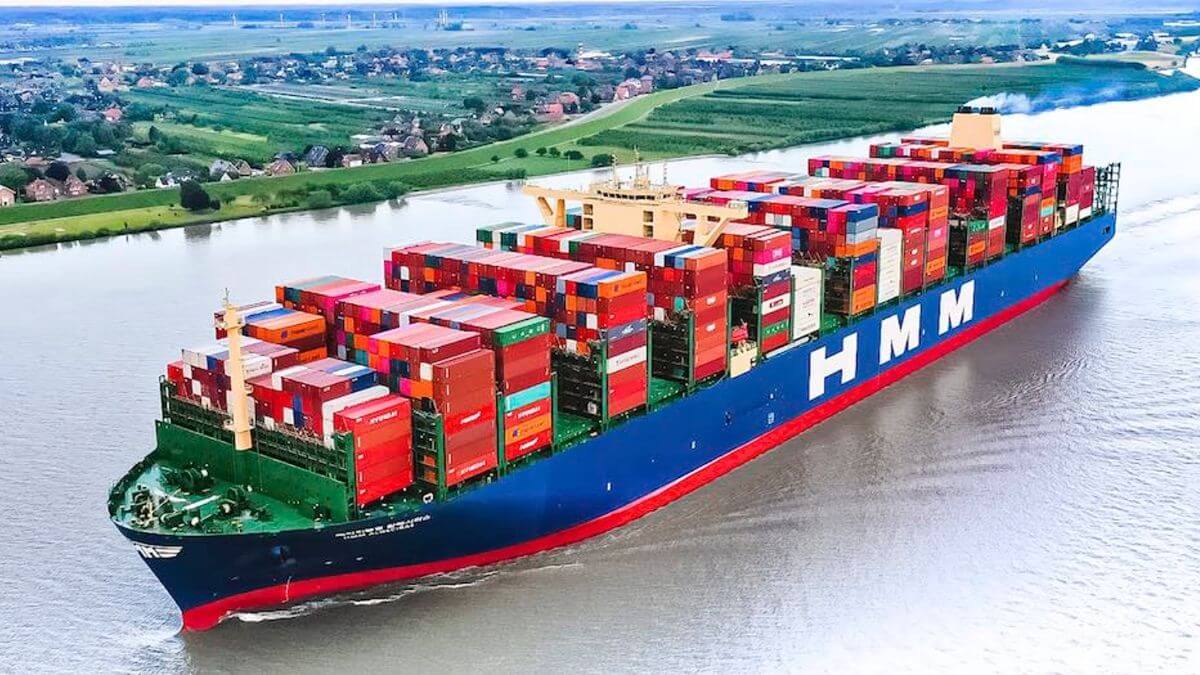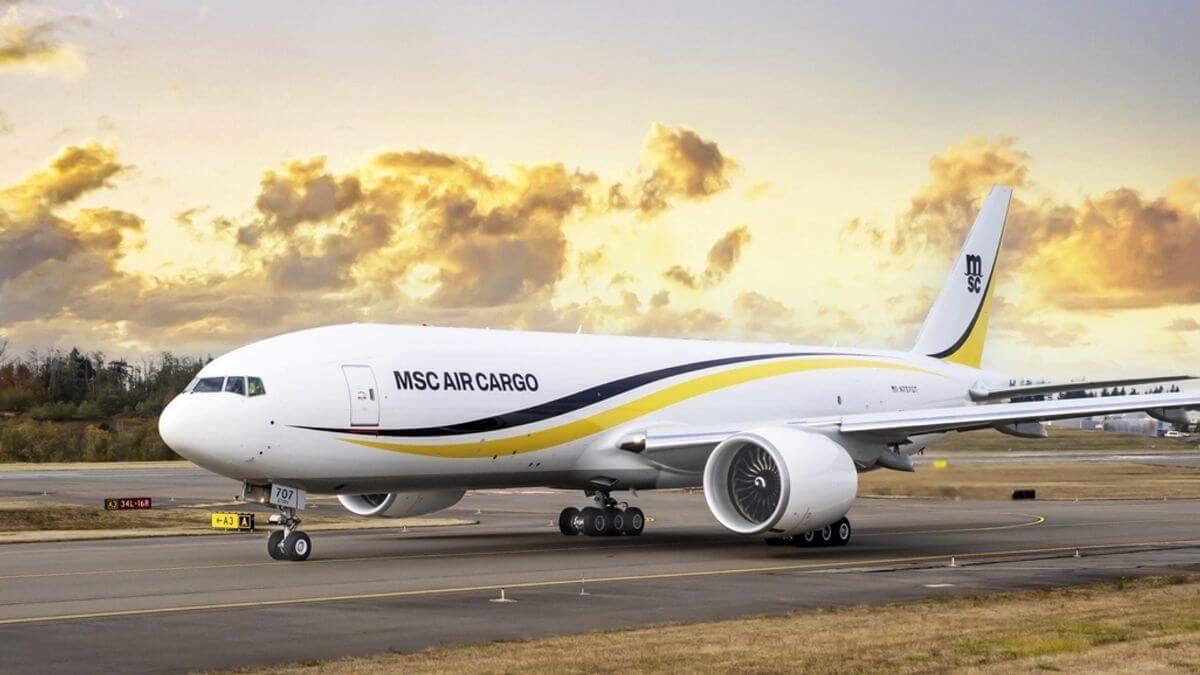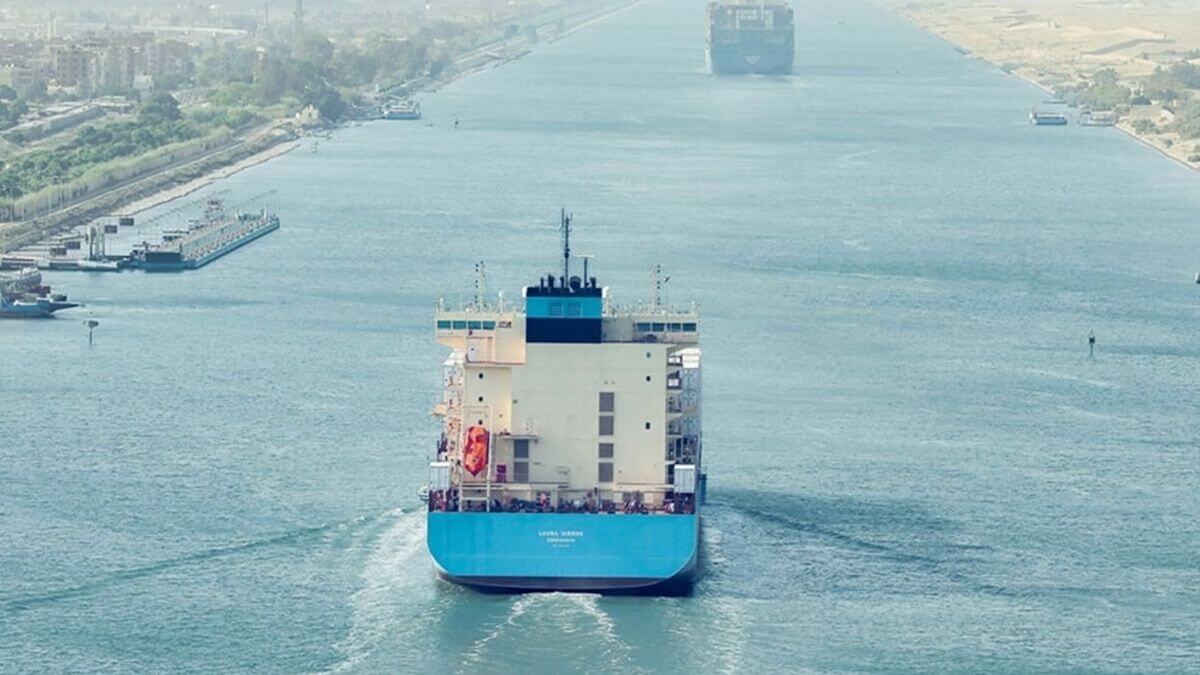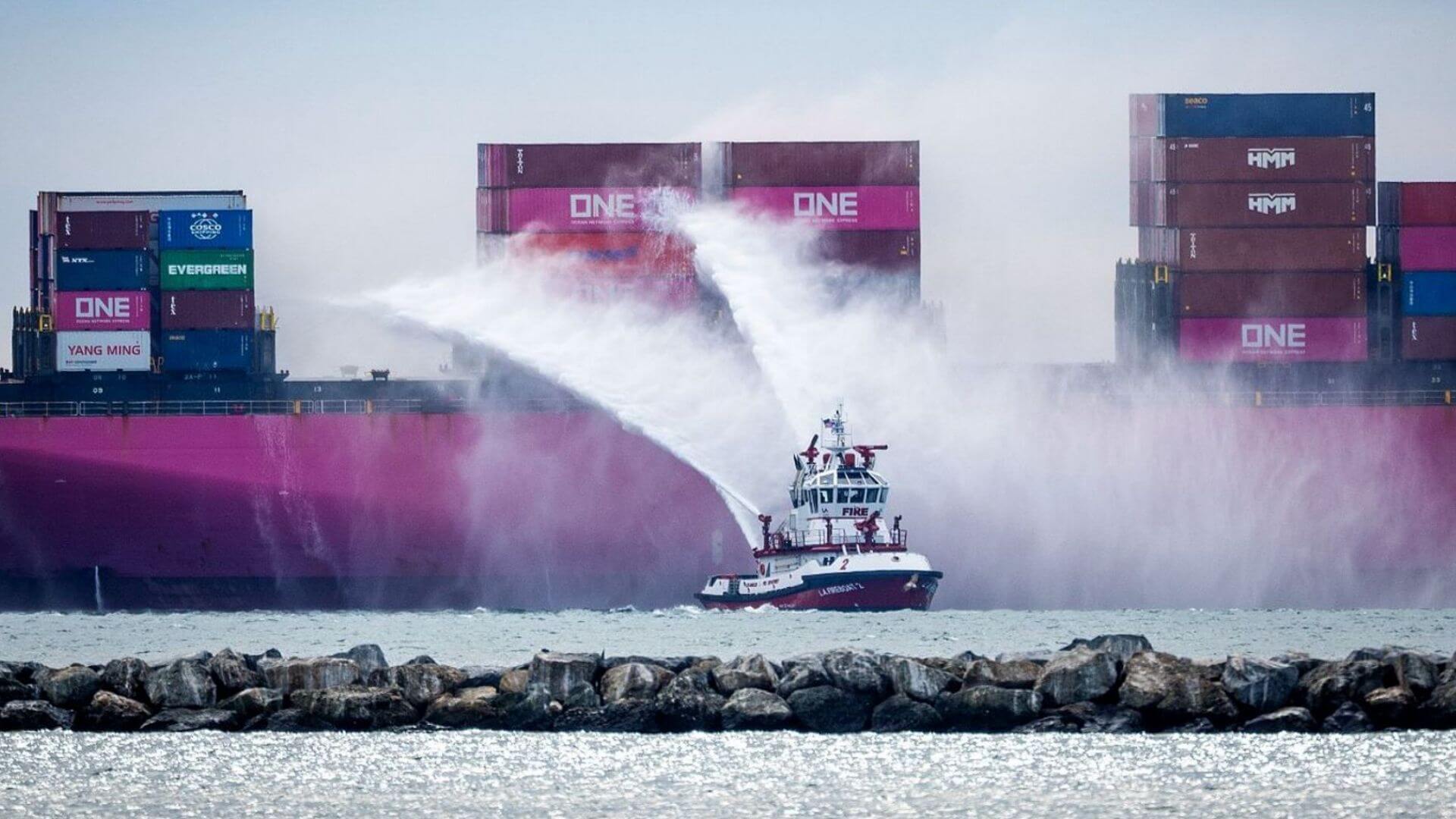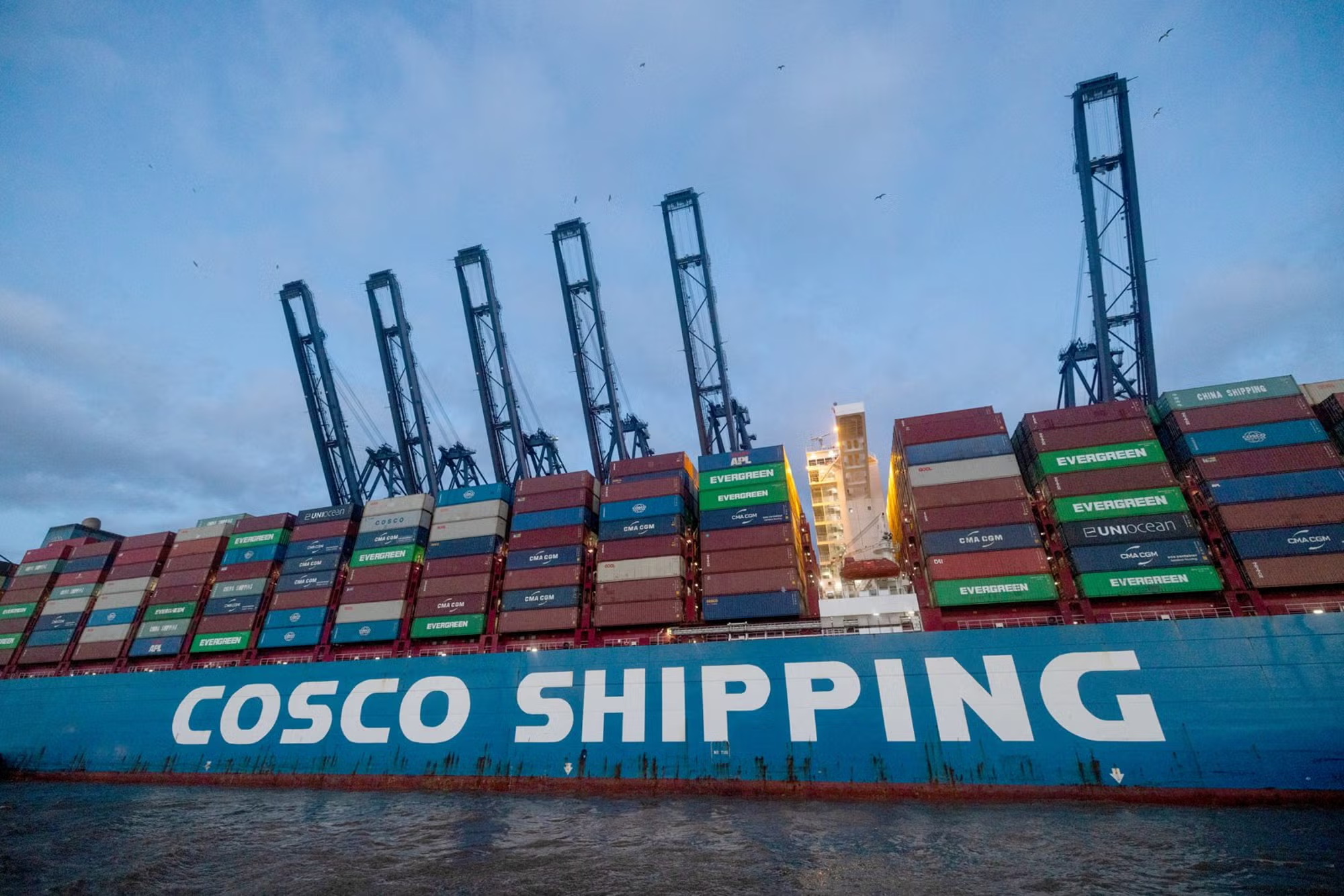Hapag-Lloyd đặt tên tàu “Wilhelmshaven Express”: Hoàn tất chương trình đóng mới tàu 24.000 TEU
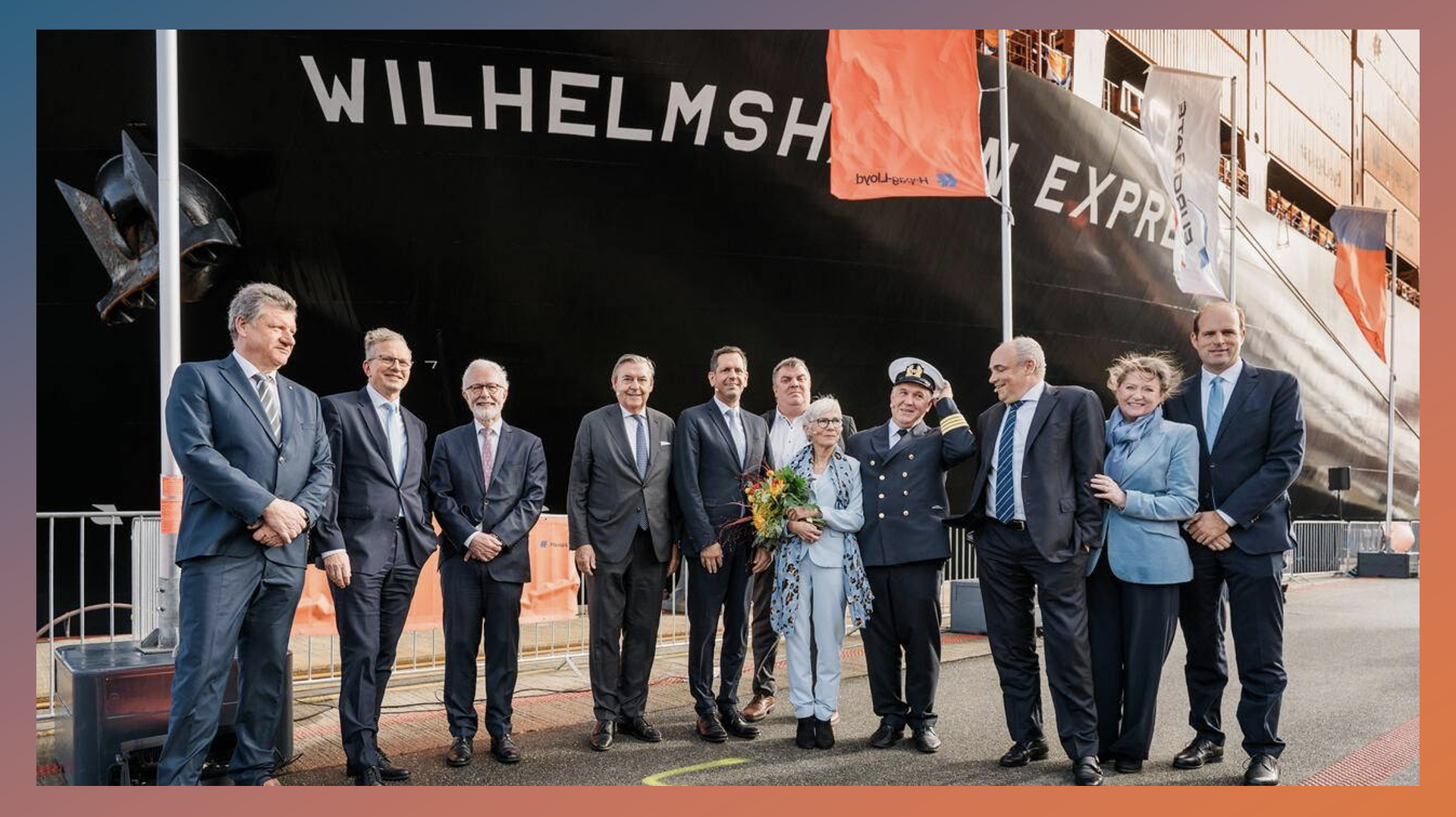
Ảnh: Hapag Lloyd
Con tàu thứ mười hai và cuối cùng thuộc lớp Hamburg Express
Dấu mốc quan trọng về phát triển bền vững, đổi mới và tăng trưởng chiến lược
Sáng 28 tháng 10 2025, Hapag-Lloyd đã tổ chức lễ đặt tên cho tàu “Wilhelmshaven Express” tại cảng Jade Weser, Wilhelmshaven (Đức). Bà Wibke Friedrichs, phu nhân của cựu thành viên Ban điều hành Hapag-Lloyd Anthony Firmin (COO), là người bảo trợ và thực hiện nghi thức đặt tên. Buổi lễ có sự tham dự của Thủ hiến bang Hạ Saxony Olaf Lies, cùng các khách mời danh dự, khách hàng, đối tác kinh doanh và giới truyền thông.
Sự kiện không chỉ đánh dấu việc ra mắt một tàu container hiện đại mà còn khép lại chương trình đóng mới kéo dài ba năm đầy tính chiến lược của Hapag-Lloyd. “Wilhelmshaven Express” là tàu thứ 12 và cũng là tàu cuối cùng thuộc lớp Hamburg Express, dòng tàu siêu lớn đã định hình lại đội tàu của công ty và đặt ra tiêu chuẩn mới về hiệu suất và tính bền vững.
Với sức chở 23.660 TEU và hệ thống động cơ hai nhiên liệu (LNG và biomethane), con tàu này được khai thác trên tuyến NE1 của liên minh Gemini Cooperation, kết nối châu Á và Bắc Âu với hiệu suất tối đa và lượng phát thải giảm đáng kể.
Ông Rolf Habben Jansen, Giám đốc điều hành Hapag-Lloyd, cho biết:
“‘Wilhelmshaven Express’ và 11 tàu chị em không chỉ là những con tàu lớn nhất trong đội tàu của chúng tôi – mà còn là biểu tượng cho cam kết mạnh mẽ trong việc giảm phát thải, duy trì chất lượng dẫn đầu và thúc đẩy tăng trưởng chiến lược dài hạn.”
Ông Jansen cũng nhấn mạnh vai trò trọng yếu của Cảng Container Wilhelmshaven:
“Cảng nước sâu này đã khẳng định vị thế là một trung tâm ổn định và hiệu quả cho Hapag-Lloyd và Gemini Cooperation. Với quy trình nhất quán, khả năng xử lý hàng hóa hiệu quả và kết nối trực tiếp tới các tuyến thương mại quan trọng như Viễn Đông và Đại Tây Dương, Wilhelmshaven đóng vai trò thiết yếu trong việc củng cố mạng lưới vận tải và tăng cường khả năng chống chịu của chuỗi cung ứng khu vực Bắc Âu.”
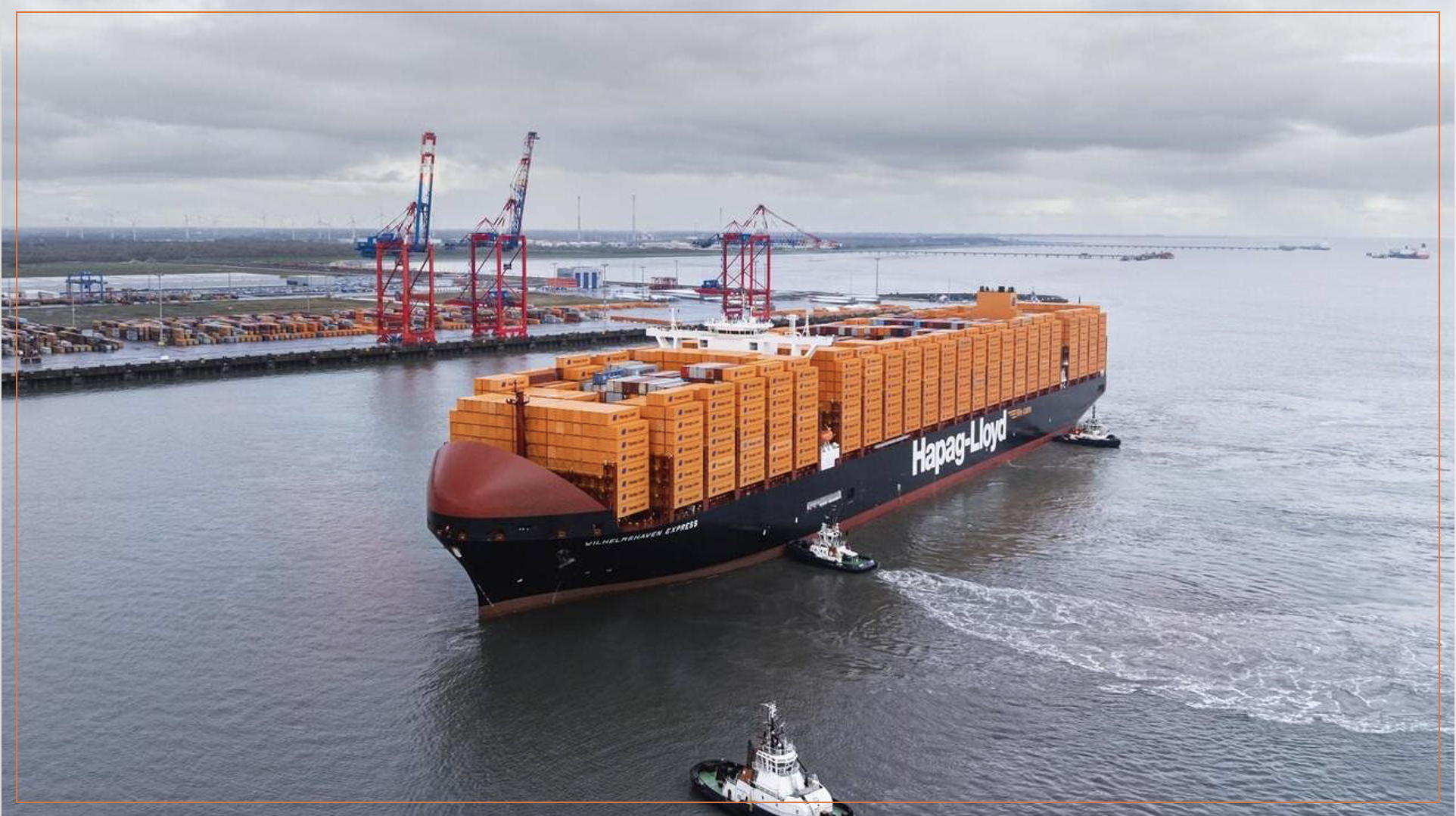
Ảnh: Hapag-Lloyd
Toàn bộ dòng tàu Hamburg Express được đóng tại nhà máy đóng tàu Hanwha Ocean (Hàn Quốc) với tổng vốn đầu tư 2 tỷ USD, đánh dấu một trong những dự án mở rộng đội tàu lớn nhất trong lịch sử Hapag-Lloyd. Mỗi tàu dài 399 mét, được trang bị công nghệ tiên tiến giúp giảm tới 25% lượng CO₂ so với các thiết kế thông thường.
Nhìn về tương lai, Hapag-Lloyd đang chuẩn bị cho chương trình đóng mới tiếp theo gồm 24 tàu container hiện đại. Trong đó, 12 tàu có sức chở 16.800 TEU và 12 tàu còn lại có sức chở 9.200 TEU. Tất cả đều sẽ sử dụng động cơ hai nhiên liệu áp suất cao tiên tiến, có khả năng vận hành bằng biomethane, giúp giảm tới 95% lượng phát thải CO₂ so với hệ thống động cơ truyền thống. Các tàu này dự kiến được bàn giao trong giai đoạn 2027–2029, tiếp tục khẳng định cam kết của Hapag-Lloyd đối với đội tàu hiện đại và bền vững.
